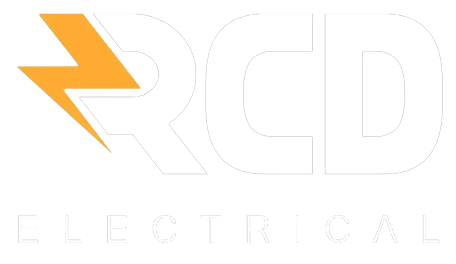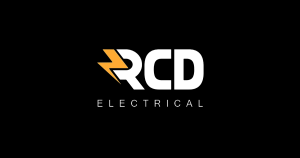An electrical safety inspection ensures your home or business meets safety regulations and functions efficiently. Whether you’re a homeowner, landlord, or business owner, preparing for an inspection can help identify potential hazards, ensure compliance with electrical standards, and prevent costly repairs. Today in this blog post, we’ll guide you through the key steps to get ready.
Need expert assistance to ensure your property passes the inspection smoothly? RCD Electrical Ltd specialises in thorough electrical inspections, including Electrical Installation Condition Reports (EICR), ensuring your home or business meets legal safety requirements.
Call us today on 020 3488 2928 or email info@rcdelectrician.co.uk to schedule your inspection!
RCD Electrical Ltd provides expert electrical services in North London, including 24/7 emergency support, EICR inspections, and installations. With certified electricians, we ensure safe, reliable, and compliant solutions for homes and businesses.
What Is An Electrical Safety Inspection?
An electrical safety inspection is a comprehensive assessment conducted by a licensed electrician to evaluate the condition of your electrical system. It ensures compliance with electrical codes and standards and helps identify potential hazards before they become dangerous.
Why Is An Electrical Safety Inspection Important?
- It ensures compliance with current electrical codes and standards.
- It helps identify potential electrical hazards before they lead to fires or electric shocks.
- It enables landlords and business owners to meet legal requirements.
- It reduces the risk of common electrical issues detected during inspections.
- It provides essential electrical safety certificates for insurance and regulatory compliance.
So, whether purchasing a new home, upgrading an older property, or ensuring business safety, an electrical safety inspection is crucial.
Steps To Prepare For An Electrical Safety Inspection
Proper preparation can make the inspection process smoother and increase the likelihood of passing without major repairs. Below are key steps to follow:
1. Conduct A Preliminary Home Safety Audit
Before the inspection, a home safety audit will be performed to identify visible issues. Look out for:
- Exposed wires or damaged outlets
- Overloaded circuits and power strips
- Flickering lights or frequent breaker trips
- Burning smells or buzzing sounds from electrical panels
2. Follow An Electrical Inspection Checklist
A well-organised electrical inspection checklist ensures nothing is overlooked. Some key items include:
- Checking all outlets and switches for damage
- Inspecting the main service panel for rust or loose connections
- Verifying that smoke detectors and carbon monoxide alarms are functional
- Ensuring grounding and bonding are in place
- Checking for outdated or recalled electrical components
This electrical inspection checklist allows you to address minor issues before the official inspection.
3. Ensure Compliance With Electrical Codes And Standards
Different properties require compliance with various electrical codes and standards based on location and building type. Some common regulations include:
- Proper installation of GFCI (Ground Fault Circuit Interrupter) outlets in bathrooms and kitchens
- Correct circuit breaker sizes for different appliances
- Proper earthing and grounding systems
- Updated wiring in older homes to meet modern safety standards
Hiring certified electricians for inspections ensures your property meets all regulatory requirements.
4. Address Common Electrical Issues Found During Inspections
Some of the common electrical issues found during inspections include:
- Outdated Wiring: Older homes may have aluminium or knob-and-tube wiring, which poses a fire hazard.
- Faulty Electrical Panels: A worn-out fuse box or outdated breaker panel can lead to overloads and failures.
- Improperly Installed Electrical Work: DIY repairs and unlicensed modifications often pose serious safety risks.
If any of these issues exist, consult a licensed electrician to fix them before the inspection.
5. Organise Inspection Documentation
Gather all necessary inspection documentation, including:
- Previous electrical safety certificates
- Permits for past electrical work
- Manufacturer’s manuals for major electrical appliances
- Reports from past electrical system assessments
Having these documents ready speeds up the inspection process and demonstrates that your property has been well-maintained.
6. Plan For Post-Inspection Procedures
After the inspection, your electrician may recommend repairs or upgrades. Knowing the post-inspection procedures in advance can help you prepare for:
- Addressing any flagged safety concerns
- Upgrading outdated wiring or panels
- Obtaining updated electrical safety certificates for compliance
Working with a trusted electrician ensures all post-inspection procedures are completed efficiently.
Following the above steps can ensure a smooth electrical safety inspection and avoid potential hazards in your home or business.
Remember, proactive maintenance and hiring certified electricians for inspections can save you from costly repairs and ensure safety for years!
RCD Electrical – Your Certified Electricians For Inspections In North London
At RCD Electrical Ltd, we deliver expert electrical safety inspections for residential and commercial properties across North London. With years of hands-on experience, our fully certified and highly trained electricians ensure your electrical systems meet the latest regulatory standards and function safely.
What Sets Us Apart?
- Decades of industry expertise – Our team has completed hundreds of electrical inspections, ensuring properties remain safe and fully compliant with BS 7671 regulations.
- NICEIC-approved professionals – We follow the highest industry standards, providing trustworthy, qualified electrical assessments.
- Cutting-edge technology – We use advanced diagnostic tools, thermal imaging, and licensed software for precise, reliable reports.
- Detailed & transparent reports – Our EICR inspections have comprehensive documentation, outlining necessary improvements or compliance issues.
- 24/7 emergency response – Our team is ready to assist, day or night, whether you need an urgent inspection or a last-minute compliance check in North London and the surrounding areas.
CONTACT RCD ELECTRICAL
Our Comprehensive Electrical Services Include
Beyond EICR inspections, we provide fault finding, rewiring, emergency electrical services, fire alarm installations, consumer unit upgrades, EV charger setups, and more. Our electricians are committed to safety, efficiency, and top-tier customer service.
Call us on 020 3488 2928 or email info@rcdelectrician.co.uk to book your electrical inspection today!
FAQs
1. Why is hiring a certified electrician necessary for electrical safety inspections?
Hiring a certified electrician in North London ensures expert inspections, compliance with London regulations, and early hazard detection, reducing fire and shock risks while keeping properties legally safe.
2. How often should electrical safety inspections be conducted for residential and commercial properties in London?
In London, by law, residential rental properties require electrical safety inspections every five years. At the same time, commercial properties also typically follow a five-year guideline, with high-risk businesses needing more frequent checks.
3. What are the key components inspected during an electrical safety assessment?
An electrical safety inspection typically covers:
- Wiring and connections
- Electrical panels and circuit breakers
- Sockets and switches
- Earthing and bonding
- Appliances and fixtures

